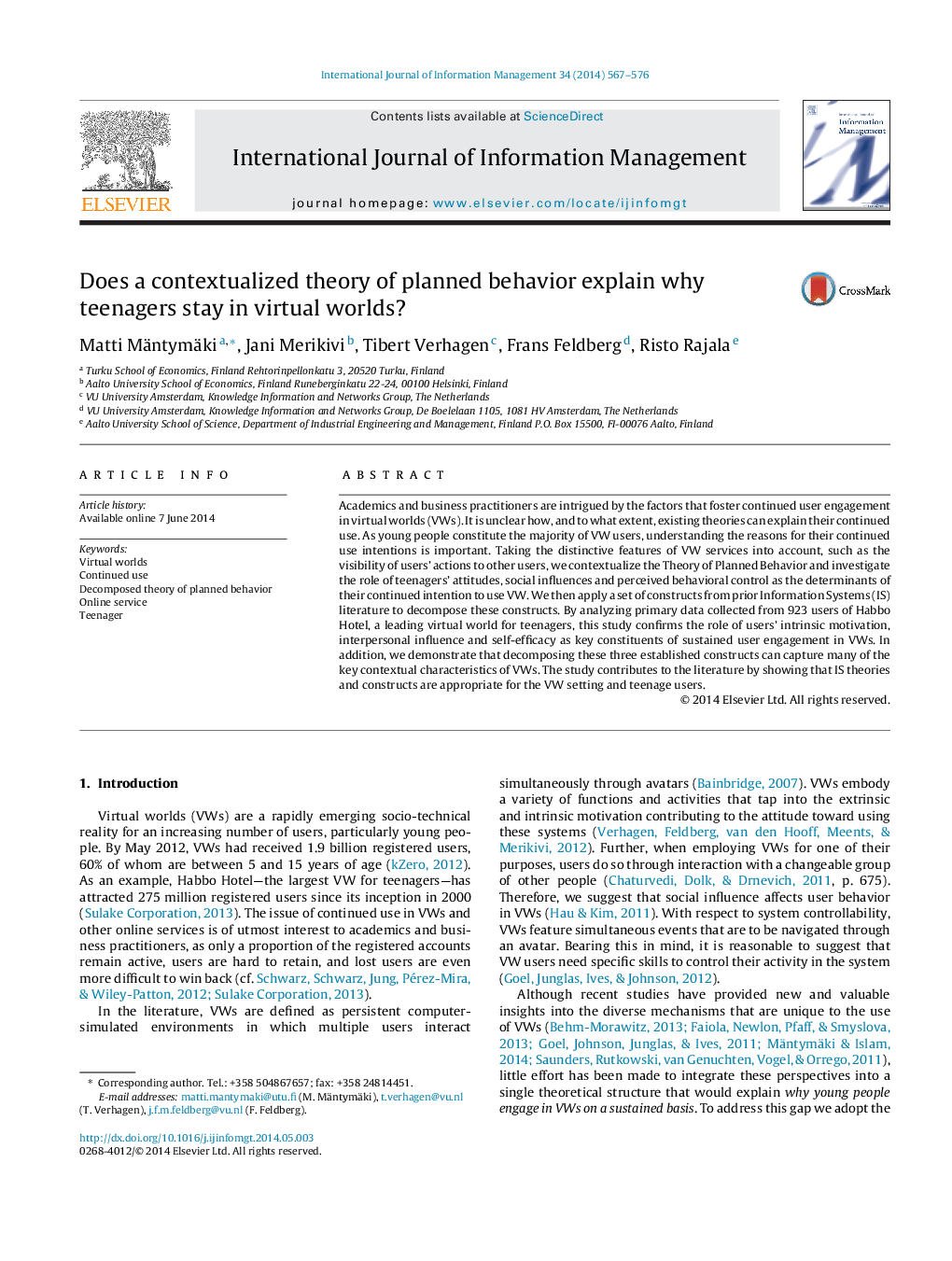| Article ID | Journal | Published Year | Pages | File Type |
|---|---|---|---|---|
| 1025664 | International Journal of Information Management | 2014 | 10 Pages |
•Retaining the existing users is a major business challenge for VW operators.•Theoretically well-grounded tools are needed to understand VW users’ decision making.•We contextualize DTPB to establish a model to predict continued VW use.•Our study captures teenager behavior, which is rarely studied in the IS literature.•Intrinsic motivation, social influence and self-efficacy are key drivers of VW use.
Academics and business practitioners are intrigued by the factors that foster continued user engagement in virtual worlds (VWs). It is unclear how, and to what extent, existing theories can explain their continued use. As young people constitute the majority of VW users, understanding the reasons for their continued use intentions is important. Taking the distinctive features of VW services into account, such as the visibility of users’ actions to other users, we contextualize the Theory of Planned Behavior and investigate the role of teenagers’ attitudes, social influences and perceived behavioral control as the determinants of their continued intention to use VW. We then apply a set of constructs from prior Information Systems (IS) literature to decompose these constructs. By analyzing primary data collected from 923 users of Habbo Hotel, a leading virtual world for teenagers, this study confirms the role of users’ intrinsic motivation, interpersonal influence and self-efficacy as key constituents of sustained user engagement in VWs. In addition, we demonstrate that decomposing these three established constructs can capture many of the key contextual characteristics of VWs. The study contributes to the literature by showing that IS theories and constructs are appropriate for the VW setting and teenage users.
